I have been trying to learn more about ways to better optimize my eloquent queries. I understand that it involves having more robust database designs and asking data from the server the "right" way.
The Application
I have a sample application that lets you add task lists, remove task lists, and edit them (just the title mostly). With each task list, you can add tasks, delete tasks, and edit tasks. A typical CRUD app.
The Code
I wont post my Vue components, unless requested, because I am not sure it's relevant. I am more interested in the initial query optimization. I have my relationships setup like this:
Model: User.php
<?php
namespace App;
use Illuminate\Notifications\Notifiable;
use Illuminate\Foundation\Auth\User as Authenticatable;
use App\Models\TaskList;
use App\Task;
class User extends Authenticatable
{
use Notifiable;
/**
* The attributes that are mass assignable.
*
* @var array
*/
protected $fillable = [
'first', 'last', 'email', 'phone', 'password',
];
/**
* The attributes that should be hidden for arrays.
*
* @var array
*/
protected $hidden = [
'password', 'remember_token',
];
public function lists() {
return $this->hasMany(TaskList::class,'user_id');
}
}
Model: TaskList.php
<?php
namespace App\Models;
use Illuminate\Database\Eloquent\Model;
use User;
use App\Models\Task;
class TaskList extends Model
{
protected $fillable = ['user_id','status','title'];
public function user() {
return $this->belongsTo(User::class);
}
public function tasks() {
return $this->hasMany(Task::class,'list_id');
}
public function scopeLists() {
return $this->where('user_id',auth()->user()->id);
}
}
Model: Task.php
<?php
namespace App\Models;
use Illuminate\Database\Eloquent\Model;
use App\Models\TaskList;
use App\User;
class Task extends Model
{
public function list() {
return $this->belongsTo(TaskList::class);
}
}
Controller: TaskListController.php @index
public function index()
{
$user = auth()->user()->load('lists.tasks');
$data = [
'lists' => $user->lists,
];
return view('user.tasklist',$data);
}
In my view I am not doing anything special. Just sticking my data into my Vues array member lists:
let app = new Vue({
el: '#app',
data: {
lists: []
}
});
@if(isset($lists))
@foreach($lists as $list)
app.lists.push({
id: '{{ $list->id }}',
title: '{!! addslashes($list->title) !!}',
status: '{{ $list->status }}',
tasks: JSON.parse('{!! $list->tasks !!}')
});
@endforeach
@endif
The Problem
The problem is simply that My load time is at about 1 second. I have read mixed information online that Laravel is a slow frameworks, others claim they can get sub 20ms load time and so on. Granted, I understand that I am in dev environment and I am going to see different results from production. I also understand that I have dev packages that wouldn't necessarily be loaded in production and that would improve booting. But I think these numbers below are pretty slow and there's something else going on here.
The Question
Simply, how can I improve performance and optimize my application in this situation?
I want to know what steps I can take in this specific scenario to improve my applications performance. In my dev box, fully loaded with all my dev packages, I can achieve sub 500ms load times. Even 500ms seems slow. Can Sub 200ms or sub 100ms be achieved? Is it just a hardware thing? Or am I totally wrong about my relationships and loading?
"require": {
"php": ">=7.1.3",
"fideloper/proxy": "~4.0",
"laravel/framework": "5.6.*",
"laravel/tinker": "~1.0"
},
"require-dev": {
"barryvdh/laravel-debugbar": "^3.1",
"filp/whoops": "~2.0",
"fzaninotto/faker": "~1.4",
"mockery/mockery": "~1.0",
"phpunit/phpunit": "~7.0",
"symfony/thanks": "^1.0"
},
Any insight into optimizing this is greatly appreciated!


